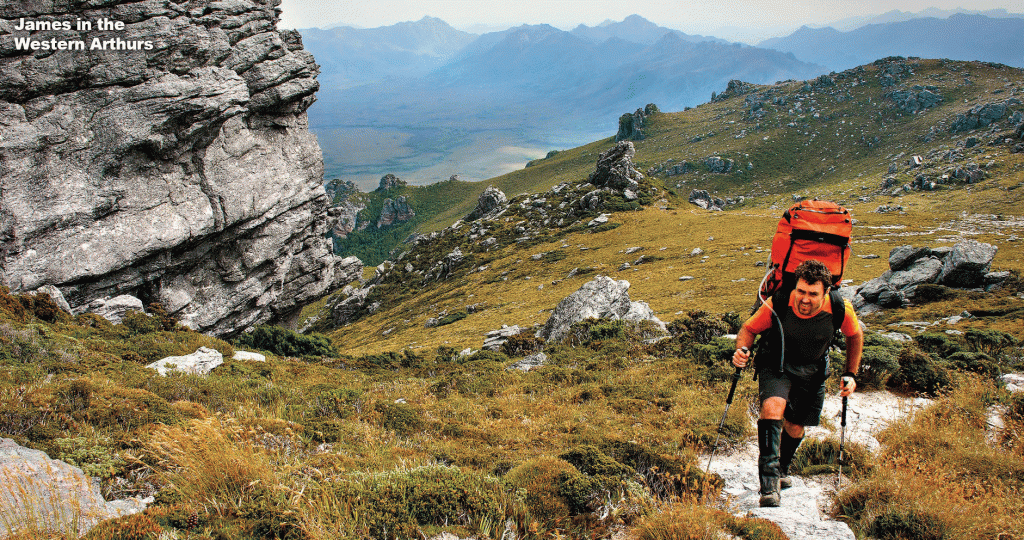
I’ve been thinking a lot about the Daintree lately. This is only partly because this issue of mag looks at— as the third in our year-long series on Australia’s great environmental battles—the campaign to save it. No, more importantly, I’m thinking of a road trip I once took there that changed my life.
When I was four, my parents loaded up our car and took me on a six-week trip to Cape Tribulation, camping all the way. Cape Trib in the 70s was almost completely undeveloped. The road in was a goat track, barely passable in our 2WD. I have vivid memories of getting bogged in sand, of Dad knocking off the muffler and then tying it back on with some vine, and of him lying in water under the car after we broke down halfway across a creek. I still remember—as I watched him tinker with the stranded vehicle—the jungle’s thick greenery and the rounded creek boulders. And I remember beach camping in our canvas tent and then having the incoming tide forcing us to move it. I remember all this, but equally importantly, I remember nothing prior. This trip gave me my earliest memories in life.
Cape Trib back then was the end of the road. We turned around and headed back south. But I was changed forever. While I didn’t, of course, consciously reflect on this trip’s transformative power, I understood that camping was fun, that natural beauty—of radiant blue waters and lush greenery—was powerful, and that freedom and adventure were intoxicating.
As you’ll soon read in the profile on Tim Cope (this issue of Wild weaves many strands that seem pertinent to my life), specific trips as kids and teenagers have the power to change us forever, and to set us on paths we follow for the rest of our lives (for him it was a school trekking trip in Nepal). But as powerful as trips are, so too can words and stories change our lives. For Tim, it was Wilfred Thesiger’s Arabian Nights. For me, two stories stand out. One was in National Geographic, a piece (years old when I read it) on hiking in the Canadian Rockies. The other was a story in Wild.
Wild was—and still is, of course— important to me. It was, in short, my inspiration. My father died when I was young, and my mother was too busy working, feeding and clothing me and my brothers to take us out adventuring (although she did take us to the Warrumbungles multiple times on camping trips), so it was largely in the pages of Wild that I found outdoorsy inspiration.
But there was one specific story that resonated. I can’t remember what issue it ran in or even what year (and of course, I could look it up*), but it was a piece on some guys who spent weeks backcountry skiing in California’s Sierras. Again, I don’t remember the specifics, but really, they’re not important. What’s important is the seed that story planted. Because although it would be years until I first went backcountry skiing, I remember being struck by the sheer of adventure of it all. Yes, Wild has always been full of adventure, but for some reason—perhaps it was the novelty of snow, perhaps the bitter cold, perhaps the seeing of no-one for weeks on end, perhaps the self-reliance—this story in particular drew me in. That, I thought to myself, is what I want with my life, adventure like that.
I believe that adventure has made me happier, not least of the reasons being that it makes you humble. Of course, it brings joy and beauty, too, and there is the—if I can be frank, partly ego-driven—satisfaction that comes from rising to the adventurous challenges I’ve set for myself over the years. I also believe I’m not alone in finding this happiness. Yes, I’m sure somewhere out there an angry and bitter adventurer exists, but it’s hard to maintain fury when, if you are outdoors often enough, you’re consistently put in your place by weather, by mountains, by nature itself. Adventure teaches you to accept. And in acceptance, we find happiness.
But it was that story in Wild that, as much as anything else, put me on that road. That’s why I was so happy recently when, at a party, the mother of a teenager mentioned that, although she’d not read Wild herself, she knew it must be special: Her penniless son had just spent ten bucks of what little money he had on the magazine. I’m hoping that the pages he reads, and the stories they tell, can inspire him the same way they inspired me. That they can conjure a life of adventure, a respect for nature. Great stories matter. And not just for inspiring young ‘uns, but for inspiring the old ‘uns too.
James McCormack
Editor
* It was Ian Brown’s Skiing the High Sierra, Autumn 1988

